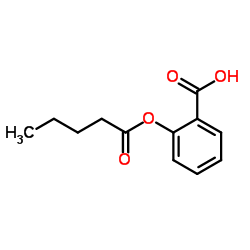Resveratrol potently reduces prostaglandin E2 production and free radical formation in lipopolysaccharide-activated primary rat microglia.
Eduardo Candelario-Jalil, Antonio C Pinheiro de Oliveira, Sybille Gräf, Harsharan S Bhatia, Michael Hüll, Eduardo Muñoz, Bernd L Fiebich
文献索引:J. Neuroinflammation 4 , 25, (2007)
全文:HTML全文
摘要
Neuroinflammatory responses are triggered by diverse ethiologies and can provide either beneficial or harmful results. Microglial cells are the major cell type involved in neuroinflammation, releasing several mediators, which contribute to the neuronal demise in several diseases including cerebral ischemia and neurodegenerative disorders. Attenuation of microglial activation has been shown to confer protection against different types of brain injury. Recent evidence suggests that resveratrol has anti-inflammatory and potent antioxidant properties. It has been also shown that resveratrol is a potent inhibitor of cyclooxygenase (COX)-1 activity. Previous findings have demonstrated that this compound is able to reduce neuronal injury in different models, both in vitro and in vivo. The aim of this study was to examine whether resveratrol is able to reduce prostaglandin E2 (PGE2) and 8-iso-prostaglandin F2alpha (8-iso-PGF2 alpha) production by lipopolysaccharide (LPS)-activated primary rat microglia.Primary microglial cell cultures were prepared from cerebral cortices of neonatal rats. Microglial cells were stimulated with 10 ng/ml of LPS in the presence or absence of different concentrations of resveratrol (1-50 microM). After 24 h incubation, culture media were collected to measure the production of PGE2 and 8-iso-PGF2 alpha using enzyme immunoassays. Protein levels of COX-1, COX-2 and microsomal prostaglandin E synthase-1 (mPGES-1) were studied by Western blotting after 24 h of incubation with LPS. Expression of mPGES-1 at the mRNA level was investigated using reverse transcription-polymerase chain reaction (RT-PCR) analysis.Our results indicate that resveratrol potently reduced LPS-induced PGE2 synthesis and the formation of 8-iso-PGF2 alpha, a measure of free radical production. Interestingly, resveratrol dose-dependently reduced the expression (mRNA and protein) of mPGES-1, which is a key enzyme responsible for the synthesis of PGE2 by activated microglia, whereas resveratrol did not affect the expression of COX-2. Resveratrol is therefore the first known inhibitor which specifically prevents mPGES-1 expression without affecting COX-2 levels. Another important observation of the present study is that other COX-1 selective inhibitors (SC-560 and Valeroyl Salicylate) potently reduced PGE2 and 8-iso-PGF2 alpha production by LPS-activated microglia.These findings suggest that the naturally occurring polyphenol resveratrol is able to reduce microglial activation, an effect that might help to explain its neuroprotective effects in several in vivo models of brain injury.
相关化合物
| 结构式 | 名称/CAS号 | 分子式 | 全部文献 |
|---|---|---|---|
 |
戊酰基水杨酸
CAS:64206-54-8 |
C12H14O4 |
|
COX-2 mediated induction of endothelium-independent contract...
2014-09-01 [J. Cardiovasc. Pharmacol. 64(3) , 209-17, (2014)] |
|
Cyclooxygenase-2 enhances alpha2beta1 integrin expression an...
2010-01-01 [Mol. Cancer 9 , 43, (2010)] |
|
Des-Arg9-bradykinin causes kinin B1 receptor mediated endoth...
2014-12-01 [Pharmacol. Res. 90 , 18-24, (2014)] |
|
Mechanisms Underlying Enhanced Noradrenaline-Induced Femoral...
2016-01-01 [Biol. Pharm. Bull. 39 , 384-93, (2016)] |